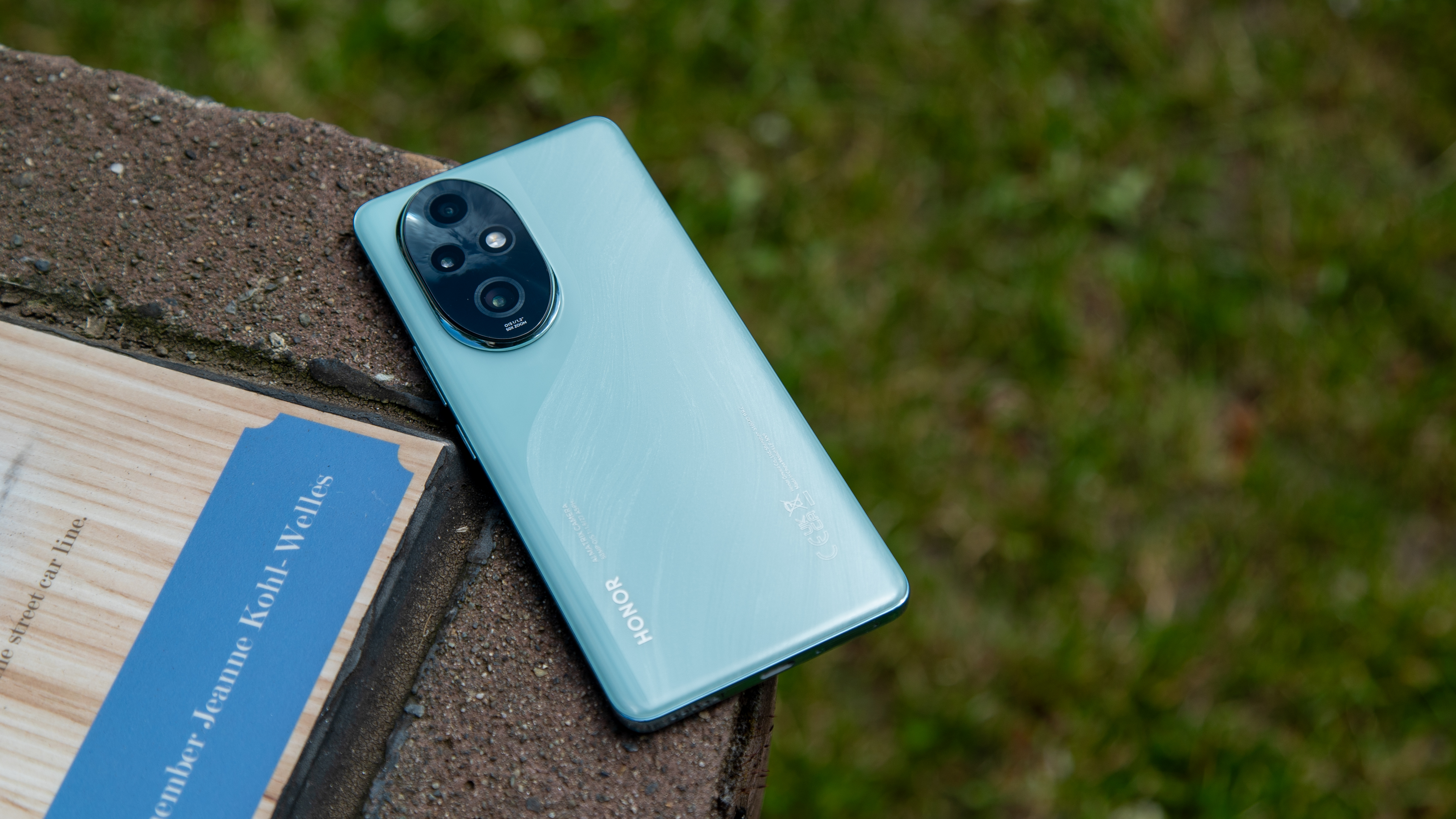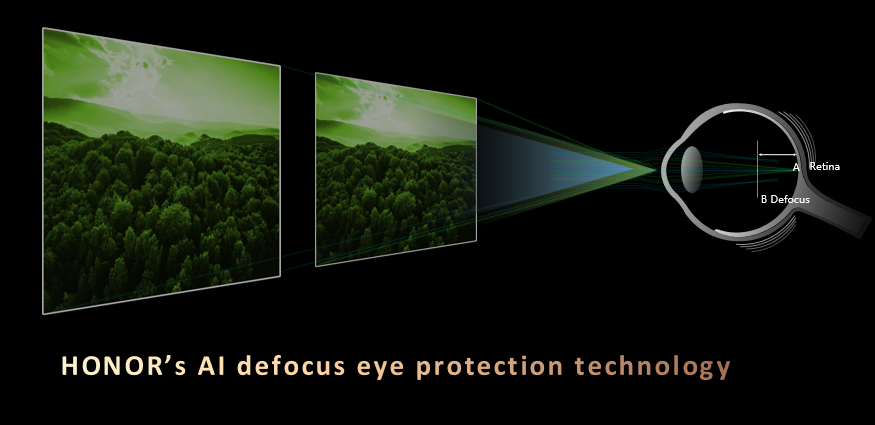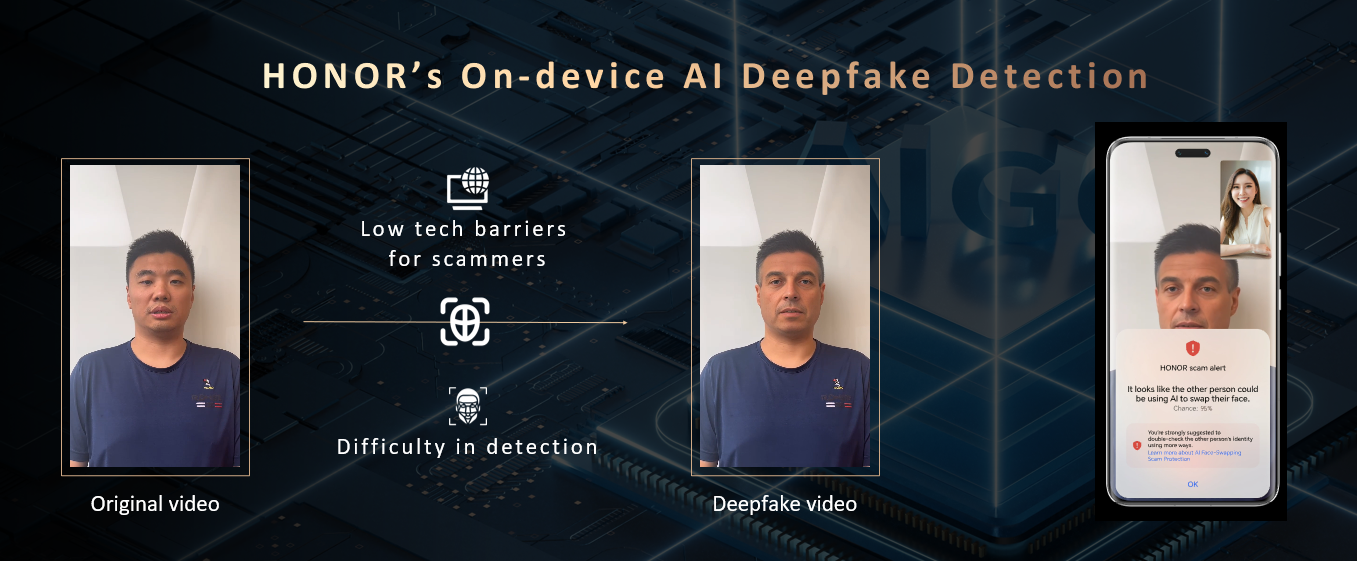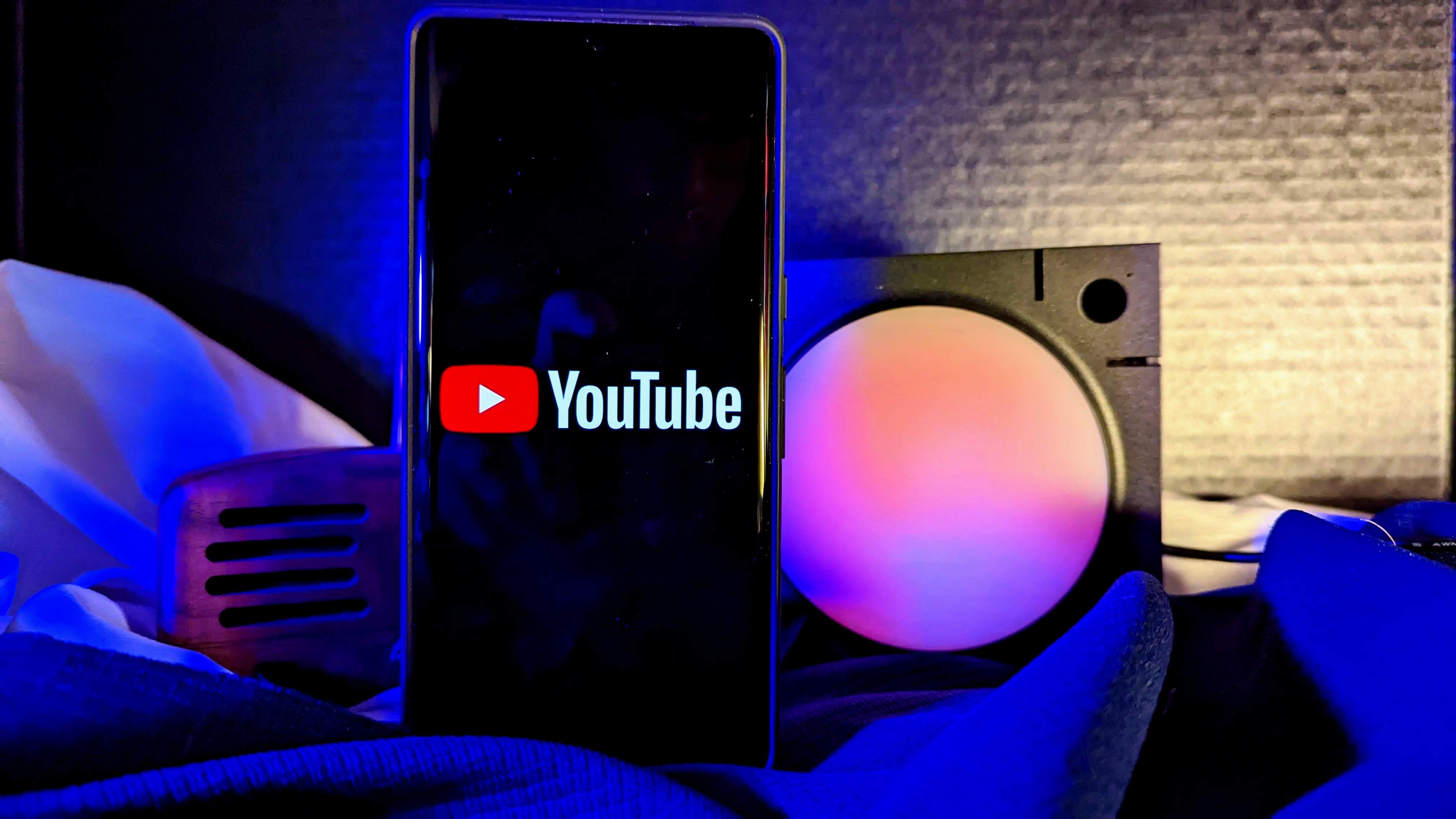Honor's latest AI features want to fight deep fake videos and eye strain
At MWC Shanghai, Honor rolls out AI-powered Defocus Eye Protection and Deepfake Detection features.

What you need to know
- Honor's new AI Defocus Eye Protection combats screen-induced eye strain and myopia by blurring peripheral vision while keeping the center clear.
- The feature is claimed to reduce transient myopia by an average of 13 degrees, with some users seeing up to a 75-degree improvement.
- Meanwhile, Honor also unveiled a new detection tech that uses AI to analyze eye contact, lighting, and image clarity in real time to detect deepfakes.
Honor has introduced two new AI-driven features designed to keep users safe and healthy.
Honor showcased its new AI Defocus Eye Protection tech at MWC Shanghai. As its name implies, this new on-device feature uses AI to tackle the rising issue of screen-induced eye strain, with a special focus on combating myopia (nearsightedness).
The rapid increase in computer and mobile phone use in recent years has gone hand in hand with a worrying rise in global cases of myopia. This is largely due to the prolonged strain on our eyes from focusing on screens up close. Over time, this constant close-up viewing can cause the eyeball to elongate, leading to nearsightedness.

Honor's new feature is intended to replicate defocus glasses on your smartphone screen. Defocus glasses are great for your eyes because they blur your peripheral vision while keeping the center clear, helping reduce eye elongation.
While defocus glasses use corrective lenses, the exact workings of Honor's AI Defocus Eye Protection technology are still under wraps. However, Honor claims that this software solution can significantly reduce transient myopia in users, averaging a 13-degree reduction, with some seeing improvements up to 75 degrees.
The other feature is pretty intriguing. Honor claims it can detect fake content using AI by analyzing eye contact, lighting, and image clarity. It even works in real time to thwart video impersonation scams before they can do any damage.
In the AI era, deepfakes are increasingly problematic. These realistic but fake media are hard to spot and pose a big online threat. Bad actors use them to hide identities, impersonate others, or create fake personas. This issue underscores the need for strong measures to protect against deepfake scams.
Get the latest news from Android Central, your trusted companion in the world of Android

Honor says its AI deepfake detection scans video calls in just three seconds. If a fake is spotted, users get an instant on-screen warning, helping them avoid potential scams.
The company's deepfake detection runs on a carefully curated dataset of videos and images. This collection helps the AI spot common scam signs and subtle anomalies that reveal deepfakes.
It's unclear if these features work entirely on-device, but real-time deepfake detection likely needs an internet connection. The company also hasn't shared which Honor phones will support these features or when they'll be available. More details should be coming soon.

Jay Bonggolto always keeps a nose for news. He has been writing about consumer tech and apps for as long as he can remember, and he has used a variety of Android phones since falling in love with Jelly Bean. Send him a direct message via X or LinkedIn.
You must confirm your public display name before commenting
Please logout and then login again, you will then be prompted to enter your display name.
